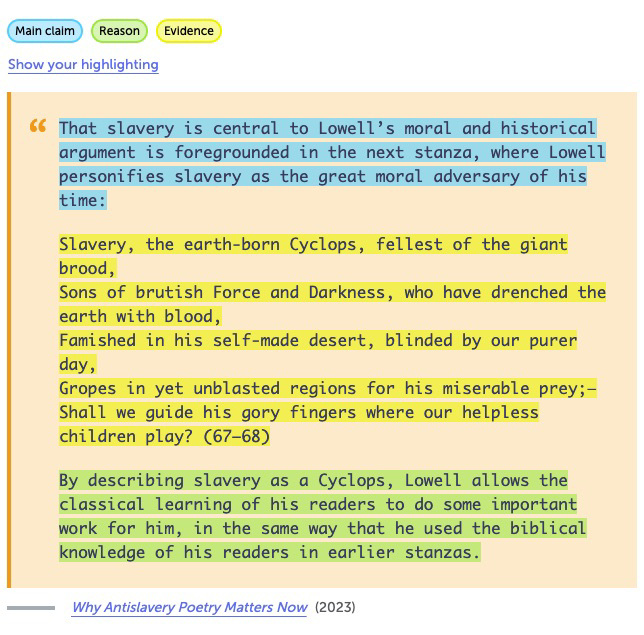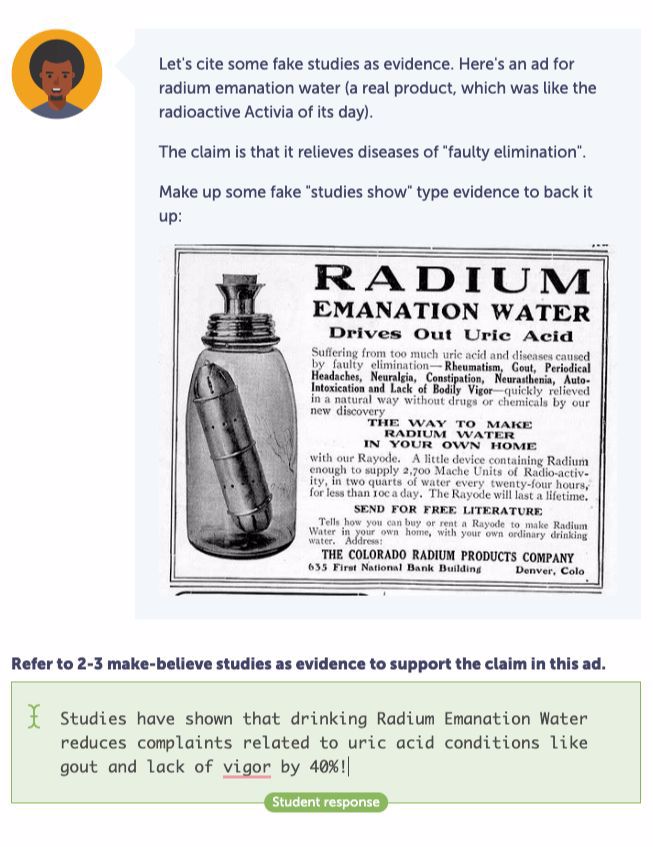Next in our argumentation series, we have Forms of Evidence. (You can find the other reasoning & argumentation lessons here.)
Evidence is a big part of any good argument, but what is it and where does it come from?
This lesson surveys eight forms of evidence, including stories of experience, direct observations, numbers & statistics, and expert testimony.
We use a wide range of examples from ads, articles, books, and video essays to explore the distinctive features & strengths of each form.
We don't cover evaluating evidence! We realised while trying to wrestle this lesson into a digestible form that evaluating evidence needed to be a lesson in its own right, so you can look forward to that in the not-too-distant future.
Next up, we'll be moving from argumentation to persuasion, with a lesson on rhetorical context.



